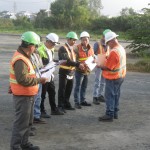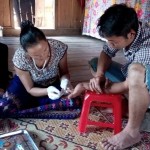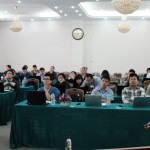
Jessica Nguyen had gender reassignment surgery, but for years her passport and identification did not reflect this important change in her gender identity. Potential employers would not hire her because they did not know how to classify her, as male or female. Her employment search became an experience in stigma and discrimination.

Walk by the average Vietnamese construction site and you will probably see some heads without hard hats, people without vests, bare feet or sandals and minimal harnesses or fall protection. As in many developing countries, lower costs are still often prioritized over worker safety on the average local building project.

In a quiet corner of bustling downtown Ho Chi Minh City, Thu Nguyen Tan starts his working day by logging in on Facebook. His inbox is filled up with messages from young urban men who have sex with men (MSM) and transgender women (TGW) seeking advice on a broad range of issues. Some are seeking guidance on safe sex and HIV protection. Others are interested in accessing HIV testing services, and are unsure where to go or are scared of being judged.

/sites/default/files/documents/1861/FS_HealthyMarkets_Sept2016_Eng.pdfLe Minh Thanh is the leader of G-Link, a community-based organization and social enterprise supporting men who have sex with men (MSM) and transgender women (TGW) in Ho Chi Minh City. Thanh is also one of Vietnam’s first HIV lay testing providers. In this role, he delivers HIV testing services directly to MSM and TG clients using a rapid HIV finger prick, a diagnostic that can be administered easily and quickly.

Energy efficiency in the building sector is becoming a key area of interest in Vietnam, where energy consumption is growing quickly as a result of increasing industrialization and urbanization. In 2012, the building sector accounted for 38 percent of the country’s power consumption, and energy demand is expected to increase as the urban population continues to grow.








Comment
Make a general inquiry or suggest an improvement.